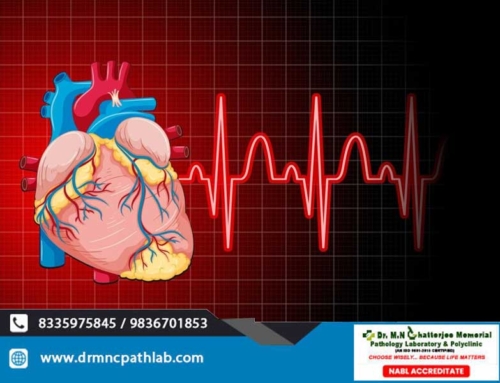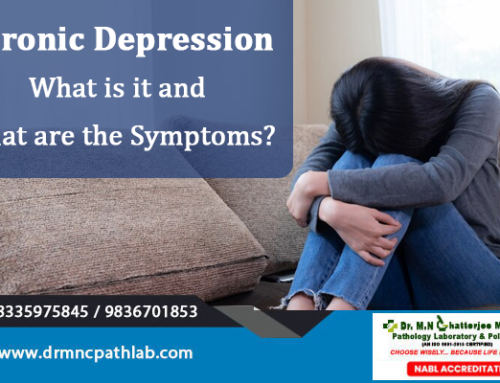Depression has a negative effect on the lives of people. Sometimes people even give their lives due to acute depression. If any person is found to be in a depression, proper treatment should be done and for it, the exact cause of depression has to be found in every case. For everyone the underlying causes of depression are different. Blood tests can be of much help in determining the underlying root causes of depression. The following are 7 such blood tests:
1. High-sensitivity C-reactive protein (hsCRP)
The liver produces a substance called C-reactive protein (CRP). If there is inflammation in the body, it increases, and a marker of systemic inflammation is a higher level of CRP in the blood. The fact that depression is an inflammatory disease is suggested by an increasing amount of research. Chronic, low-grade inflammation in the body and brain sometimes result in depressive symptoms which may simply be a side effect of these. That’s why test for CRP is very important. You will need to take steps to fight back against the inflammation and dampen it if your levels come back high. The various ways you can do that are following an anti-inflammatory diet, reducing stress, improving gut health, treating infections, getting enough sleep and so on.
2. Vitamin D – 25 (OH) D
When exposed to the sun, your skin synthesizes a fat-soluble vitamin called vitamin D. There are vitamin D receptors in every tissue in your body including the brain. Physiological and psychological consequences including depression can result from a deficiency of Vitamin D and this can prove very costly. It has been found that those with the lowest levels of Vitamin D are 11 times more likely to be depressed than people with healthy levels when researchers evaluated the effects of Vitamin D on mental health. A deficiency of Vitamin D is found in a large percentage of the suicidal patients. In fact, a major health problem in the whole world is Vitamin D deficiency. So, you must get your Vitamin D levels checked regularly in a medical laboratory, at least once a year. So, you must optimize your Vitamin D levels if they are low. This will improve your mood and reduce inflammation. You can get Vitamin D from sunlight, supplements and also from Vitamin D lamp.
3. Thyroid Panel
In your neck below your Adam’s apple, your thyroid gland is located, which is a small butterfly-shaped gland. Thyroid hormones thyroxine (T4) and triiodothyronine (T3), which impact the health and functioning of the entire body, are produced by the thyroid gland and this makes it one of your most important glands. It has been found in various research that depression can result from thyroid dysfunction and low levels of thyroid hormones (hypothyroidism). Hashimoto’s thyroiditis, an autoimmune disease, is one of the most common causes of hypothyroidism. In it, the thyroid tissue gets attacked by the body’s immune system. Low thyroid has the following symptoms such as chronic fatigue, brain fog, low mood, forgetfulness, weakness and sluggishness. Sometimes when the actual reason for depression is an underlying thyroid issue, they are only given antidepressants which do not fully solve the problem. That’s why, a complete thyroid panel, which is a type of thyroid test, should be done. Thyroid Stimulating Hormone (TSH), Free Triiodothyronine (fT3), Free Serum Thyroxine (fT4), Reverse T3 (rT3) and Thyroid Antibodies should be measured in a high-quality thyroid panel. The depression of people can be lifted and they can feel remarkably better by thyroid hormone replacement.
4. Vitamin B12
If you want to manage and overcome depression, another very important step to take is getting your vitamin B12 levels checked. For your brain to work properly, having sufficient levels of vitamin B12 is necessary. Vitamin B12 deficiency can be caused due to poor gut health and even psychiatric medications. There is a greater risk of developing depression in people who have low levels of vitamin B12. Psychiatrists often prescribe antidepressants that can further deplete vitamin B12 instead of looking at vitamin B12 levels in the blood. Memory loss, fatigue, irritability, apathy, personality changes, etc. are other symptoms of vitamin B12 deficiency. You will need to supplement with the methylated form of vitamin B12 (methylcobalamin or methyl-B12) if vitamin B12 levels in your body are low. From food, primarily animals, you can also get vitamin B12. If you want to promote the regeneration of myelin, lower your homocysteine levels, reverse brain damage and cognitive decline, optimizing your vitamin B12 levels is also important.
5. Estradiol
Responsible for the development and regulation of the female reproductive system, estradiol is an estrogen and the primary female sex hormone. In the mental health of women, it plays a significant role. Between estradiol, mood and wellbeing, there is a strong link. In fact, with sudden drops or fluctuations in estradiol and long periods of sustained low levels of estrogen, depression is correlated. It has been found in research that women can recover from depression (postpartum, perimenopause and postmenopause) by stabilizing or restoring estrogen levels. It has been found that the brain’s secretion of oxytocin, a powerful hormone that acts as a neurotransmitter in the brain, is increased by estradiol. If the levels are low, it is linked to depression.
6. Testosterone (Free and Total)
It has been found that symptoms of depression in men can result from low testosterone levels in plenty of research. It has also been found that testosterone replacement has antidepressant effects in depressed patients in a systematic review and meta-analysis. Your total testosterone levels will be tested by your doctor. Checking your free testosterone levels is also important. It would be wise to try testosterone replacement therapy, at least for a little while, if your levels are low until you find the reason of low testosterone. The regeneration of myelin is promoted by testosterone and it also reduces brain fog.
7. Magnesium (Red Blood Cell)
In more than 300 biochemical reactions in your body, magnesium, a vital mineral, participates. All of these reactions can have a huge effect on your mood, and these include neurotransmitter and hormonal activity. Many neuropsychiatric problems including depression can worsen because of low magnesium levels, according to research. In fact, significantly lower levels of magnesium are found in the cerebrospinal fluid in patients with major depression who have attempted suicide. For this reason, testing your levels is very important. There are a number of ways to replenish them if you have low levels. Foods such as spinach, chard, pumpkin seeds, almonds, avocado, dark chocolate and bananas that contain magnesium should be eaten by you. For most people, taking supplements or Epsom salt baths is still necessary. Testing magnesium levels and prescribing magnesium supplements should be done by doctors because the root cause of depression could be reached this way. The blood-brain barrier gets support from normalization of magnesium levels and it also helps overcome addiction and withdrawal.






